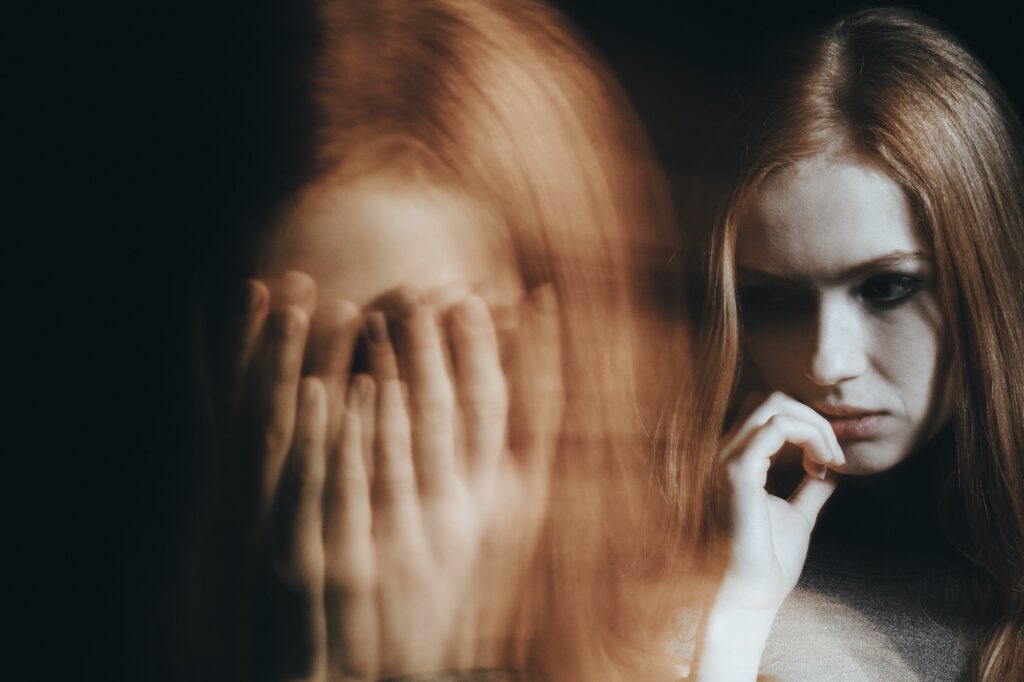Table of Contents
What is Bipolar Disorder?
Bipolar disorder is a psychological health condition that impacts your state of minds, which can swing from 1 extreme to another. It utilized to be referred to as manic anxiety.
Symptoms
People with bipolar affective disorder have episodes of:
- anxiety — sensation really low and sluggish
- mania — feeling really high and overactive
Symptoms of bipolar affective disorder depend upon which state of mind you’re experiencing. Unlike basic state of mind swings, each severe episode of bipolar affective disorder can last for a number of weeks (and even longer).
Depression
You might at first be identified with depression prior to you have a manic episode (often years later on), after which you might be identified with bipolar affective disorder.
- During an episode of anxiety, you might have frustrating sensations of insignificance, which can possibly cause ideas of suicide.
- If you’re feeling self-destructive, check out where to get immediate assistance for psychological health.
- If you’re feeling really depressed, call a GP, your care co-ordinator or talk to a regional psychological health crisis group as quickly as possible.
Mania
During a manic stage of bipolar affective disorder, you might:
- feel really pleased
- have great deals of energy, enthusiastic strategies and concepts
- invest big quantities of cash on things you can not pay for and would not typically desire
It’s likewise typical to:
- not feel like consuming or sleeping
- talk rapidly
- end up being upset quickly
You might feel really imaginative and see the manic stage of bipolar as a favorable experience. But you might likewise experience signs of psychosis, where you see or hear things that are not there or end up being persuaded of things that are not real.
Living with bipolar affective disorder
The low and high stages of bipolar affective disorder are typically so severe that they hinder daily life. But there are a number of alternatives for dealing with bipolar affective disorder that can make a distinction.
They objective to manage the impacts of an episode and assistance somebody with bipolar affective disorder live life as typically as possible.
The following treatment alternatives are offered:
- medication to avoid episodes of mania and anxiety — these are referred to as state of mind stabilisers, and you take them every day on a long-lasting basis
- medication to deal with the primary signs of anxiety and mania when they take place
- finding out to identify the triggers and indications of an episode of anxiety or mania
- mental treatment — such as talking treatment, which can assist you handle anxiety, and supplies guidance about how to enhance your relationships
- way of life guidance — such as doing routine workout, preparing activities you take pleasure in that offer you a sense of accomplishment, along with guidance on enhancing your diet plan and getting more sleep
It’s believed utilizing a mix of various treatment approaches is the very best method to manage bipolar affective disorder. Help and guidance for individuals with a long-lasting condition or their carers is likewise offered from charities, support system and associations. This consists of self-help and finding out to handle the useful elements of a long-lasting condition.
Bipolar disorder and pregnancy
Bipolar disorder, like all other psychological health issue, can become worse throughout pregnancy. But professional assistance is offered if you require it.
What triggers bipolar affective disorder?
The precise reason for bipolar affective disorder is unidentified, although it’s thought a variety of things can activate an episode.
These consist of:
- severe tension
- frustrating issues
- life-altering occasions
- hereditary and chemical aspects
Who’s impacted
- Bipolar disorder is relatively typical, and 1 in every 100 individuals will be identified with it eventually in their life.
- Bipolar disorder can happen at any age, although it typically establishes in between the ages of 15 and 19 and seldom establishes after 40.
- Men and females from all backgrounds are similarly most likely to establish bipolar affective disorder.
The pattern of state of mind swings in bipolar affective disorder differs extensively. For example, some individuals just have a number of bipolar episodes in their life time and are steady in between, while others have lots of episodes.
Bipolar disorder and driving
If you have bipolar affective disorder, it might impact your driving. You need to notify the Driver and Vehicle Licensing Agency (DVLA).
Note: Social care and assistance guide
- require aid with everyday living due to the fact that of bipolar affective disorder
- take care of somebody frequently due to the fact that they have bipolar disorder (consisting of member of the family)


